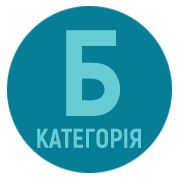COMPUTER INTELLIGENCE AND … CREATIVITY
DOI:
https://doi.org/10.32782/2307-1222.2025-59-7Keywords:
computer intelligence, literary criticism, poetry, development, creativityAbstract
The study of the problem of developing individual creative abilities has remained relevant from the time of Socrates to the present day. Folk oral creativity fostered the development of these qualities long before theoretical generalizations emerged. Meanwhile, the advent of new technical capabilities has necessitated further scientific exploration. The widespread adoption of artificial intelligence (such as Gemini, GPT, etc.) has raised concerns among experts about the threat of mass manipulation. However, the advantages of computer systems, if they are being used correctly, are also evident. The informatization of educational institutions has become a daily reality, naturally drawing the attention of academic institutions to these issues. A testament to the relevance of this research topic is the fact that in September 2024, the tenth scientific forum of researchers from Ukraine and Poland was held, with the telling title, “Education for the Digital Transformation of Society”.The rapid pace of change is remarkable. While the first theoretical works on artificial intelligence were published in the mid-20th century, recent years have witnessed an avalanche-like growth in information flows. It is no coincidence that Polish authors, in their outstanding work “The Pedagogical Encyclopedia of the 21st Century”, address the issues of information stress and even “informational flood”.At the ministerial level, opportunities for using artificial intelligence have been analyzed. Books with eloquent titles such as “The Didactics of Creativity” are becoming popular among colleagues. Studying the potential of artificial intelligence in the context of literary criticism and professional linguodidactics appears promising. Information becomes effective when, after familiarization and discussion, specific programs are developed based on it, with continuous monitoring of their implementation. Among the promising socially significant issues are undoubtedly diverse topics of personal self-improvement, comparative research, the search for effective ways to modernize higher education institutions, and the development of creative abilities among participants in the educational process.
References
Брутман Н.Б., Наумчук Т. Штучний інтелект на заняттях з іноземної мови за професійним спрямуванням у закладах вищої освіти. Сучасні дослідження з іноземної філології. 2023. № 1 (23). С. 211–219.
Вихрущ А.В. Академічне письмо: структура і завдання. Медична освіта. 2021. № 1. С. 112–116.
Вихрущ А.В. Велика гра Германа Гессе. Закарпатські філологічні студії. 2024. Випуск 35. Т. 2. С. 316–322.
Вихрущ А.В. Вибране для вибраних. Поезії. Тернопіль : Підручники і посібники, 2017. 176 с.
Вихрущ А.В. Есе в системі розумового виховання студентів. Медична освіта. 2023. № 4. С. 117–126.
Вихрущ А.В. Інтегральне мислення: минуле і майбутнє. Розвиток професійної майстерності педагога в умовах нової соціокультурної реальності : збірник матеріалів VІІ Міжнародної науково-практичної конференції (м. Тернопіль, Україна, 10–11 жовтня 2024 року). Тернопіль : ФОП Осадца Ю.В. 2024. С. 76–77.
Вихрущ А.В. Психологія творчості в контексті перемог і невдач Лесі Українки. Ідеологиня національної аристократії (на пошану 150-річчя від дня народження Л. Українки) : збірник наукових праць за матеріалами Всеукраїнської науково-практичної конференції з міжнародною участю 25– 26 лютого 2021 року / наукова редакторка Тетяна Єщенко. Львів, 2021. С. 426–432.
Вихрущ А.В. Концепт самотність – теорія й практика. Закарпатські філологічні студії. 2024. Випуск 34. Т. 2. С. 132–137.
Зубенко В. Штучний інтелект і вивчення іноземної мови. Закарпатські філологічні студії. 2023. Випуск 27. Т. 2. С. 80–85.
Креативне мислення: національний звіт за результатами міжнародного дослідження якості освіти PISA-2022 / кол. авт.: Т. Лісова (осн. авторка), В. Терещенко, Г. Бичко, М. Мазорчук, Г. Бондаренко, Т. Вакуленко; перекл. К. Шумова, Ю. Шпак; за ред. В. Терещенка та Г. Бондаренко. Український центр оцінювання якості освіти. Київ, 2024. 260 с.
Навольська Г.І. Силабус курсу Штучний інтелект на уроках іноземної/української мови. URL: https://tnpu.edu.ua/navchannya/sylabusy/PhD/014/SHI.pdf (дата звернення: 12.12.2024).
Професійна лінгводидактика в контексті особистісної парадигми : монографія. Том 1 / Вихрущ А.В., Гаврищак І.І., Гнатишин С.І. та ін. ; за ред. А.В. Вихруща, К.Л. Стефанишин. Тернопіль : ТНМУ, 2022. 282 с.
Фенюк Л., Смушак Т., Крук З. Автоматизовані системи для аналізу структури та стилістики літературних текстів: використання штучного інтелекту. Вісник науки та освіти. 2024. № 9 (27). DOI: https://doi.org/10.52058/2786-6165-2024- 9(27)-469-485 (дата звернення: 12.12.2024).
Шестакова С.О. Вплив штучного інтелекту на розвиток стилістичної унікальності в академічному письмі. URL: https://academy-vision.org/index.php/av/article/view/1456 (дата звернення: 12.12.2024).
Vychrushch A. Samotność studentów pierwszego roku na uniwersytetach medycznych. Pedagogika katolicka. 2020. № 26 (1). S. 73–79.










